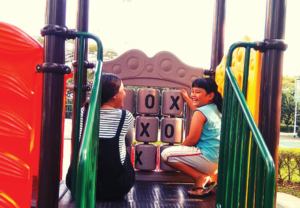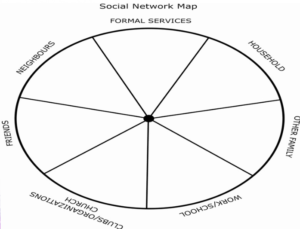How Can We Manage Anger Success-fully?
How Can We Manage Anger Success-fully?

Sometimes in our journey as a mentor, we might experience a few anger episodes from our young mentee. What do you do when that happens?
Today, we will share some tips we’ve picked up along the years that we have found useful in helping our mentees manage their emotions in the long run.
What triggers anger?
Anger doesn’t just happen. It usually arises from an event, series of events, or unmatched expectations of self and/or others, which can result in feeling frustrated, fearful, resentful, stressed, and/or disappointed.
When unresolved, this becomes unhealthy.
What can help?
1. Build Rapport
This is an important step. When trust is established, your mentee will feel safe and open up, helping them process their emotions and allowing you to understand the situation better.
2. Explain how anger comes about
Explaining and breaking down the process (Event – Emotions – Anger) can help your mentee share and understand more about the situation at each stage. Together, you can discuss any issues or solutions after, and even help them reframe their thought process.
3. Identify and articulate any emotions they are experiencing
Using a Feelings-Vocabulary Chart can help your mentee articulate their feelings and identify their emotions. By doing so, both you and your mentee can make sense of and address any other underlying emotions which led to anger.
4. Use empowering words and reframe the situation
4.1 Refrain from “must” or “should” and discuss any unrealistic expectations
Anger often arise from unmet expectations. Hence, it is good to remind your mentee to refrain from using words that lead to expectations.
For example, instead of “My best friend should know whatever I am thinking without me having to tell her”, we can change it to “I can communicate how I feel so my best friend understands what I am feeling and thinking”.
4.2 Reframe the situation
Replace a bad thought with a good one.
For example, your mentee is feeling anxious because her best friend has not replied to her text messages. You also know that your mentee’s friend is caught up in school or home front.
Instead of “My best friend is ignoring me. She doesn’t like me anymore”, you can help your mentee reframe it to “My best friend is currently occupied with some challenges in her life so she might not be able to reply me immediately. In the meantime, I can focus on my schoolwork, other activities, reach out to other friends and when my best friend is ready, we will reconnect again”.
4.3 Use “I” statements
Helping your mentee take responsibility for the emotions they are experiencing will help them feel less powerless and more in control.
For example, instead of “He made me angry when he pushed me”, we can change it to “ I feel angry because he pushed me”.
5. Listen and use open-ended questions as prompters
You may not have the solution for every problem but listening often times can be more than enough. Using open-ended questions such as “Tell me more” or “How did you feel” will help them process the situation and their emotions more.
6. Empowering activities over anger
6.1 The ball-up fist
This is a great experiential analogy that might help your mentee understand anger more. The script is as below, which can be modified to suit your mentee accordingly.
“Clench your fist and let go whenever you want you.
What do you see on your palm? (Nail marks.)
Anger is like a balled-up fist. The person who is angry also hurts himself during the process.
The longer the person holds onto anger, the longer and deeper he will feel the hurt too.
The choice is up to the person, he can let go at any time.”
6.2 Self-esteem name acronym
Have fun with this activity by coming up with empowering acronyms for your child’s name. This will help remove any negative subconscious self-beliefs they have about themselves.
For example, Sam can be Strong, Articulate, Magnetic.
6.3 Master or slave?
This is a great way of explaining to a child if they understand mandarin. In mandarin, the word anger is 怒, which can be broken into 奴(slave) and 心(heart).
By breaking 怒 into 奴 and 心, you can ask your mentee if they would like to be a slave to their heart or a master over their heart?
If their response is master, you know they are open to changing the way they view anger. If their response is slave, give them more time to process and re-evaluate their feelings.
Final thoughts
We hope this has helped you understand how anger comes about and also steps you can take with your mentee to manage this emotion better.
Anger often has a negative connotation, but the truth is, anger is an emotion, just like happiness, sadness, and fear. When managed healthily, it can even spur one on further.
Remember to celebrate any small progress you see in your mentee along the way! The more we focus on the positives, the more we will see authentic, lasting, and impactful changes.
_____
If you like to be a mentor, drop us a message here!
Also, if you wish to give and help us run our programmes, please click here. A little goes a long way as we invest in creating stronger tomorrows.
_____
Alternative “Feelings-Vocabulary” charts :
1. Words to describe emotions
2. Mood Chart
References :
1. Adapted from Life Community’s Workshop – Anger is not a bad word
2. Picture Credit Freepix





Recent Comments